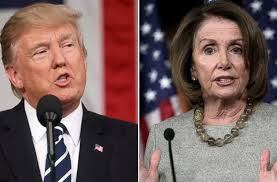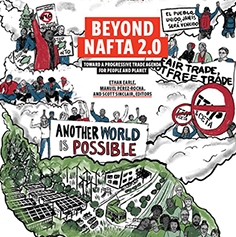The TPP-11 was signed. NAFTA is in negotiations. Tariffs are being imposed. People and the environment are not being put first. We must keep building power and fight for trade that truly benefits people and the planet.
The Trans-Pacific Partnership (TPP) was signed this Thursday, March 8th by the eleven countries that remained in negotiations after the United States abandoned the deal. The agreement, re-marketed as the Comprehensive and Progressive Agreement for Trans-Pacific Partnership (CPTPP), will set standards in more than 13 percent of the global economy, a total of $10 trillion in gross domestic product. The TPP’s signing shows that the trade model the Obama administration had sought will remain in the global panorama and that the signing governments of Asia and the Pacific still have hope that the United States could potentially join.
The lobbying effort for the United States to reconsider joining the TPP has continued amongst legislators and industry leaders alike. On Wednesday, a coalition of wheat growers sent a letter to the United States Trade Representative, Robert Lighthizer, asking the administration to reconsider joining the TPP. “If the President brings us into TPP, U.S. farmers can start winning again among the world’s most important agricultural markets.”
Before Australia’s Prime Minister visited the White House, 25 Republican Senators wrote a letter to Trump urging him to consider joining the TPP. “We encourage you to work aggressively to secure reforms that would allow the United States to join the agreement,” the senators wrote. Additionally, members of the New Democrat Coalition made a similar appeal: “Today, while President Trump is talking about taking our economy back to 1930 with a potential trade war, the eleven countries that remain in the Trans-Pacific Partnership are moving forward to finalize a 21st century trade agreement forged in part through previous U.S. leadership.”
The TPP is becoming a reality, both in its slightly modified CPTPP form and in trade deals currently negotiated by the Trump administration. According to certain reports, the progress that has been made in the NAFTA negotiations are largely taken from text agreed upon by the US, Canada, and Mexico in the TPP. While we must continue to show our support for the elimination of ISDS from all trade deals, we must also continue to pressure the State to transform its trade model to reflect truly democratic, peace-making, and ecological values. This means enforceable and profound protections for the environmental along with labor standards and job growth strategies that will serve people and their families.
We will remain in the fight for trade that truly benefits people and the planet. As trade issues become increasingly more pressing in the political agenda, we must keep informing ourselves and preparing to resist corporate trade deals that do not take people’s basic needs into account. Please help us increase our email subscribers, share our subscription form on Facebook and email! Tell your friends why they should care about trade because together, we are more powerful!

